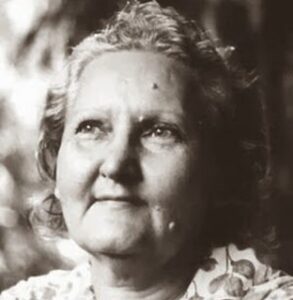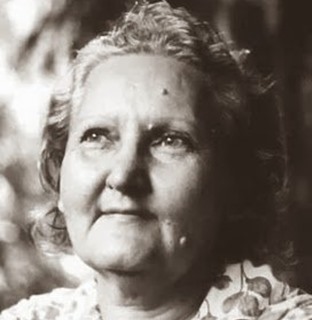Fuerteventura, Ilhas Canárias (Espanha), 1909 – Assunção (Paraguai), 1999
Adriana Veríssimo
 Specialized critics recognize that poetry, theater, visual arts, and academic life in 20th-century Paraguay cannot be explained without Josefina Plá, whose work is practically unknown outside her country. Originally from Spain, she emigrated to Paraguay at eighteen, already married by proxy to the ceramist Andrés Campos Cervera, who was 21 years her senior and internationally known by the pseudonym Julián de la Herrería.
Specialized critics recognize that poetry, theater, visual arts, and academic life in 20th-century Paraguay cannot be explained without Josefina Plá, whose work is practically unknown outside her country. Originally from Spain, she emigrated to Paraguay at eighteen, already married by proxy to the ceramist Andrés Campos Cervera, who was 21 years her senior and internationally known by the pseudonym Julián de la Herrería.
Alongside her husband, she revitalized the visual arts in Paraguay. She worked as a journalist in print media, on the radio, and organized art exhibitions. Her poetic work, which consists of around one hundred and fifty poems, speaks to the pain of being alive. In her poetry collection Tiempo y tiniebla (1982), she wrote: “the dress that came too early, that never fit well, the dress that arrived too late, to go to the party, when it was already asleep.” Other notable poetry books include El precio de los sueños (1934), her first work, El polvo enamorado (1968), Antología poética (1977), Cambiar sueños por sombras (1984), and La llama y la arena (1987).
After Andrés’s death in 1934, during her stay in Spain, Josefina Plá decided to return to Paraguay. Alongside the poet Hérib Campos Cervera and Augusto Roa Bastos, who always declared himself her disciple, she formed the celebrated trio of the so-called Generation of ’40. Unlike her contemporaries, Josefina always had a difficult relationship with the dictatorship of Alfredo Stroessner (1954-1989). In 1940, her son Ariel was born, registered under her surname.
Doña Josefina Plá, as she is respectfully called by Paraguayans, received the title of doctor honoris causa from the National University of Asunción and received art awards in Rio de Janeiro, São Paulo, and Madrid. She was a member of the Society of Argentine Authors and was nominated for the Cervantes Prize, considered the most important literary award in the Spanish language, in 1989 and 1994.



